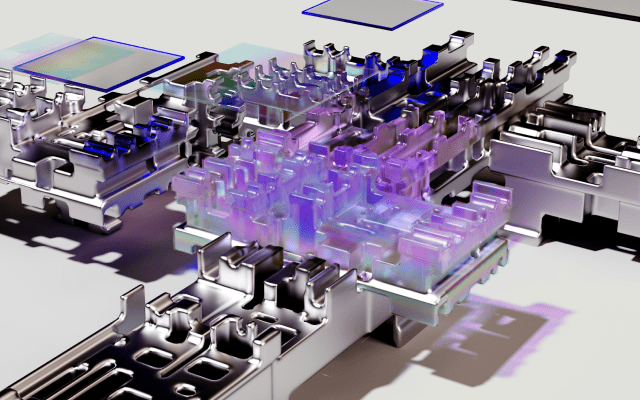Today, operational efficiency has become a crucial factor in maintaining competitiveness. The evolution towards OPEX 4.0 represents a paradigm shift, where the integration of advanced technologies and data analytics not only optimises processes, but is also a major driver for innovation and strategic decision making.
Artificial Intelligence, with its ability to learn and adapt, coupled with data analytics, enables organisations to identify patterns, forecast trends and make informed decisions in real time.
In this post we will explore how the combination of AI and Data Analytics is revolutionising operational management, providing businesses with powerful tools to achieve operational excellence in the digital age.

Operational Excellence 4.0
Operational Excellence 4.0 is not simply an evolution of traditional OPEX; it is a revolution driven by artificial intelligence and data analytics.
If we think of Operational Excellence 4.0 as a high-performance engine, AI and data analytics would be the fuel that drives it. Every time the engine is fed with new data, it becomes more powerful and efficient.
How does it work?
- Data Collection:Data is captured from all areas of operation, from production to customer service.
- Data Analytics:The distribution of the data can influence the choice of appropriate modeling techniques. Some machine learning algorithms assume that data follows a normal distribution, while others are more robust to deviations from this norm.
- Process optimisation:Changes are implemented based on the insights gained, automating tasks and improving efficiency.
- Continuous learning:The system learns from the results and constantly adjusts itself to improve performance.
Understanding AI in the context of operational excellence
Artificial intelligence (AI) is no longer a futuristic technology but a fundamental tool in the business world. But what does AI really mean in the context of operational excellence? And how can this revolutionary technology help organisations achieve new levels of efficiency and effectiveness?
What is Operational Excellence and how does AI fit into it??
- Operational Excellence Defined:Operational excellence focuses on optimising all processes in an organisation to achieve the best possible results.
- The role of AI:AI, with its ability to process large amounts of data, identify patterns and learn from them, has become a strategic ally to automate tasks, optimise processes, predict trends and improve decision-making.
The critical role of data analytics for operational excellence
Data analytics has become an indispensable tool for organizations seeking to optimize their operations and reduce costs. In the OPEX field, its impact is particularly significant.
Data analytics enables early detection of anomalies, optimization of resources and improved process efficiency.
By harnessing the potential of data analytics, companies can gain a major competitive advantage in an increasingly dynamic environment.
Benefits of implementation
- Improved decision-making:The integration of AI and Data Analytics enables large volumes of data to be analysed in real time, providing valuable and accurate information to make more informed and faster decisions.
- Process optimisation:These technologies help to identify inefficiencies and bottlenecks in operational processes, enabling their optimisation and improving productivity.
- Cost reduction:By optimising processes and improving operational efficiency, companies can significantly reduce operating costs.
- Personalisation and improved customer service:AI and data analytics enable companies to better understand their customers’ needs and preferences, offering more personalised products and services and improving customer satisfaction.
- Predicting and preventing problems:With the use of predictive algorithms, companies can anticipate problems before they occur and take preventive action, reducing downtime and improving business continuity.
- Continuous innovation:The integration of these technologies fosters a culture of continuous innovation, enabling companies to adapt quickly to market changes and remain competitive.
- Security and compliance:AI and data analytics can also improve operational security and compliance by detecting anomalies and automating audit and control processes.
Steps to integrate AI and data analytics into OPEX initiatives
- Identification of use cases:Assessment of current processes to identify opportunities for improvement with IA.
- Data collection and preparation:Ensure data quality and accessibility.
- Selecting the right tools:Commercially available AI and data analytics tools.
- Model development and implementation:Creation of customised AI models for each use case.
- Monitoring and continuous improvement:Evaluation of model performance and continuous adjustments.

Conclusion
OPEX 4.0 represents an inflection point for organisations seeking to achieve operational excellence. By harnessing the power of AI and data analytics, businesses can unlock unlimited potential, optimise their operations and gain a sustainable competitive advantage.
With these future trends in mind, organisations can prepare for the next phase of limitless operational excellence. In conclusion, OPEX 4.0 offers organisations a path to unprecedented levels of success by leveraging the capabilities of AI and data analytics. By embracing these technologies and staying at the forefront of innovation, businesses can drive continuous improvement, optimise decision-making processes and achieve sustainable operational excellence.
As we look to the future of OPEX 4.0, it is clear that the integration of AI and data analytics will continue to shape and redefine the landscape of operational excellence, enabling organisations to thrive in an increasingly competitive and dynamic business environment.
Share this post





